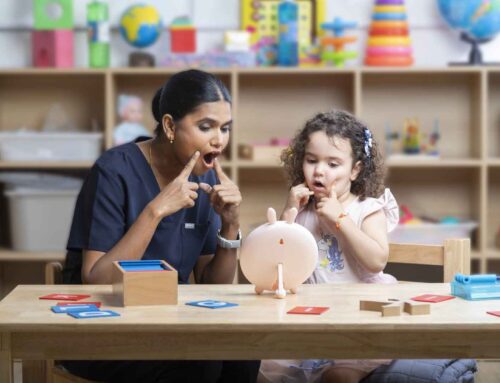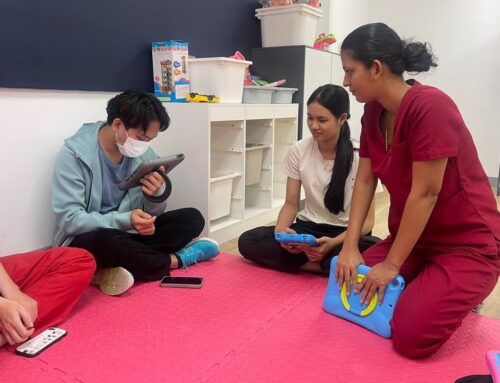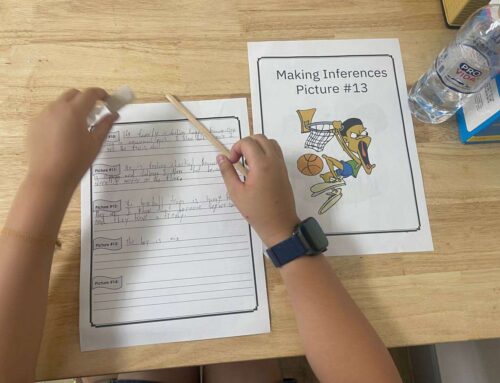Augmentative and Alternative Communication (AAC) gives children who struggle with speech another way to express themselves. For families in Phnom Penh, AAC can feel overwhelming at first—there are devices, apps, symbols, and even misconceptions to sort through. The good news: with the right guidance, AAC can empower your child to connect, learn, and participate in everyday life.
What is AAC?
AAC includes any tool or strategy that helps a child communicate beyond natural speech. It can be:
-
Low-tech: Picture cards, communication boards, sign language.
-
Mid-tech: Simple voice output buttons or step-by-step devices.
-
High-tech: Tablets or dedicated devices with communication software.
The goal is not to replace speech, but to support communication while speech skills develop—or to give a reliable voice when speech isn’t enough. Learn more about communication challenges here: Speech and Language Delay in Children and Communication & Language Disorders.
AAC Devices and Apps in Phnom Penh
With growing access to tablets and mobile devices, families can now explore a range of AAC apps. Some are symbol-based, while others use text-to-speech. At OrbRom Center, we guide parents through:
-
Choosing an AAC system that fits the child’s abilities and environment.
-
Training both the child and family on daily use.
-
Integrating AAC into school and play routines.
For children with broader developmental needs, we also consider sensory and learning profiles: Developmental Assessments.
Myths about AAC (and the truth)
-
“AAC will stop my child from talking.”
False. Research shows AAC often supports speech and language development. -
“AAC is only for nonverbal children.”
Wrong. AAC benefits any child whose speech isn’t reliable enough in daily situations. -
“Devices are too advanced for young children.”
Not true. Even toddlers can benefit from simple AAC tools. -
“Using AAC means giving up on speech therapy.”
False. At OrbRom, AAC is integrated with Speech Therapy for best results.
Additional resources: Assistive Technology for Autism and Communication & Language.
How OrbRom Center supports AAC in Phnom Penh
Our therapists provide:
-
AAC assessments to match tools with each child’s strengths.
-
Parent training for daily routines like meals, play, and schoolwork.
-
School collaboration so teachers use the same AAC strategies in class.
-
Ongoing support as the child’s needs grow and technology evolves.
For families beginning their AAC journey, our team ensures the process is practical, culturally appropriate, and sustainable. Explore our intensive supports here: Special Needs Intensive Intervention.
Starting AAC in Phnom Penh can feel like a big step, but it doesn’t have to be complicated. With the right device, app, or low-tech tool—and with guidance from trained professionals—AAC becomes a bridge to connection, learning, and independence.
We are the only Preschool specialized on children with special needs in PhnomPenh.
- Internationally qualified teachers
- Cambodia’s largest sensory room
- Outdoor swimming pool
- Covered outdoor playground
📞 Phone: 077.455.993
Telegram Link: https://t.me/OrbRom





